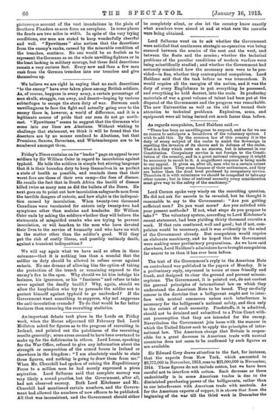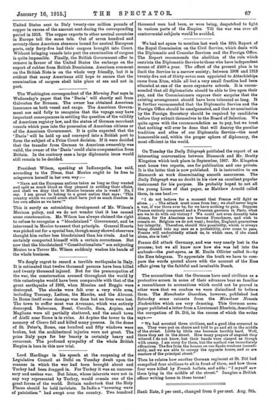Sir Edward Grey draws attention to the fact, for instance,
that the exports from New York, which amounted to 92,772,000 in November, 1913, rose to $21,000,000 in November, 1914. These figures do not include cotton, but we have been careful not to interfere with cotton. Such decrease as there undoubtedly is in some American trades is due to the diminished purchasing power of the belligerents, rather than to our interference with American trade with neutrals. As for the American exports of copper, it is shown that from the beginning of the war till the third week in December the United Staten sent to Italy twenty-one million pounds of copper in excess of the amount sent during the corresponding period in 1913. The copper exports to other neutral countries in Europe tell the same tale. Out of seven hundred and seventy-three American steamers bound for neutral European ports, only forty-five had their cargoes brought into Court. Without bringing vessels into port the examination of cargoes is quite impossible. Finally, the British Government offer to remove in favour of the United States the embargo on the export of rubber from British Dominions. American comment on the British Note is on the whole very friendly, but it is evident that many Americans still hope to secure that the examination of cargoes shall take place at sea and not in port.



































 Previous page
Previous page